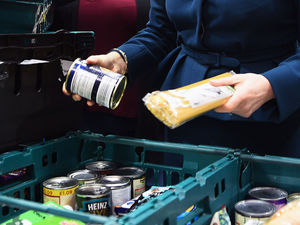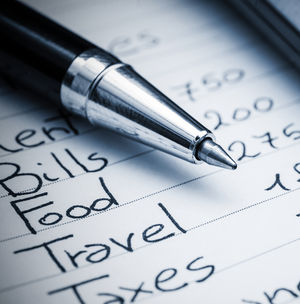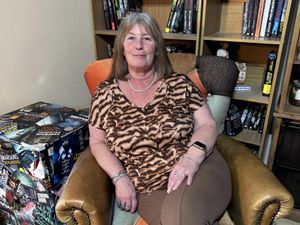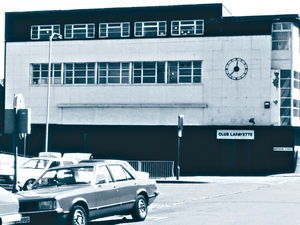Cost of living crisis: Staying afloat 'til the price is right
As families continue to struggle financially, Andy Richardson and Team Weekend share their thoughts on the cost of living crisis

Let’s talk about Tomato Ketchup. For the kitchen table staple, crystallises the mess we are in.
In 2020 – I know, a different time, three prime ministers ago – shoppers didn’t have to worry about whether or not they’d be able to afford that month’s mortgage or rent if they wanted a blob of the red stuff into which to dunk their chips.
Fast forward two years, and a price rise of 53%, or 91p per 460g bottle, and that’s no longer true. Heinz Tomato Ketchup, like Dolmio lasagne pasta sauce, is out of reach to all but the higher earners.
It’s not just tomato-based, corporate-branded products that now cost an arm and a leg. Anchor spreadable butter has increased by 45% over the past two years, as supermarket inflation has put £682 a year on the annual shop.
Overall, supermarket inflation was running at 15% last month – yes, 15% - and there’s been a switch to budget ranges and discount chains as shoppers simply can’t make ends meet. It’s not just our ability to make a spag bol, or fish’n’chips with Tommy K, that’s been hit. Rents have increased by around 15% in the past year while mortgage payments have increased by an eye-watering average of £300 per month, across the UK.
And then there’s energy bills. Don’t get us started on energy bills. Under the Energy Price Guarantee, the average annual gas and electricity bill for a direct debit customer with ‘typical’ levels of consumption is £2,500. This is 27% higher than the summer 2022 price cap and 96% higher than the winter 2021/22 price cap. Or, in old money, it’s twice as much.
Gas has increased by more over this period; up by 141% since winter 2021/22 compared to a 65% increase for electricity. The EPG caps unit costs and standing charges only, so a household using more than ‘typical’ levels of energy will face higher bills and vice versa. Ouch, in simple terms.
And then there’s wages. They’re rising more quickly than at any time since 2000, with a 5.7% increase enjoyed by most. Which means most are actually 5% worse off, due to inflation. We’re working harder and longer and taking home less, as wages fail to keep pace with inflation and as businesses stutter into a recession.
Brexit, the War in Ukraine, the aftermath of Covid-19 and our unproductive economy, managed in recent times by such numpties as Liz Truss, are among the issues.
But beyond the stats, beyond the facts and figures, lies a harsher truth. People are struggling. Issues surrounding mental health are on the rise as the pressure of being unable to pay bills bites hard. Parents forego meals so that their kids can eat. Such necessities as school uniforms are now deemed a luxury. Businesses struggle to make a living, those on medium-to-low incomes find themselves unable to pay their bills, the most vulnerable simply focus on survival.
We’re in the worst cost of living crisis in half a century; 78% of workers are paid below the real Living Wage – that’s 3.7m workers nationally. They say the cost-of-living crisis is the worst financial period they have ever faced.
Over half (56%) of low-paid workers – 2.7m workers nationally – report using foodbanks over the last 12 months, with 63% of low-paid food bank users – 1.7m workers nationally – saying their use had increased in this time.
Wearing an extra pair of socks or following Edwina Currie’s advice and sticking insulated tinfoil behind a radiator won’t be enough to pull people through. So, as we prepare for one of the toughest winters than any of us can remember, it’s time to assess the real price of the Cost of Living crisis.
Dan Morris: Baby steps to saving money
Cruel, but pretty obvious, the time when you really need more cash is when two become three.
This is true of any economic climate, but in the times in which we find ourselves, this truth is amplified.
Since the birth of our daughter a couple of months ago, my partner and I have naturally been completely reassessing where our money goes, making room for items that only a few weeks back, we simply didn’t need and had never needed. Nappies, wet wipes, formula, wet wipes, sleep suits, and more wet wipes – as has been known for eons, parenthood makes its demands on your purse strings.
Making the decision not to compromise on these precious items for your precious little person during a cost of living crisis is not difficult – they need them, and they are your world.
Where, of course, the hammer falls, is on you. Budget beauty products instead of brand name tackle. Own-brand tucker and consciously stretching it a bit further. Never compromising on the heating when the baby is in the house – but when you’re working from home and they’re out, switch it off and stick a jumper or two on.
Had we known about what the general economic situation was going to turn into, would we still have decided to get pregnant? Absolutely.
But we’re lucky.
Some of the saddest stories I’ve recently heard are of excited would-be mums and dads who have genuinely had no choice but to hold off on bringing a new life into the world because the pennies are already stretched too far.
The cost of living crisis is real, and is disrupting lives (in both the short and long term) for millions of people across the country. It is even forcing us to postpone (perhaps even forego) life’s happiest experience. What on Earth is that all about, and – in this day and age – how did it come to this?
Heather Large: Keeping track of our outgoings
For some it’s the stuff of nightmares, and for others it’s a thing of joy.
Love it or hate it, the Excel spreadsheet is a necessary tool at the moment.
It’s probably being used more than ever as households get on top of their money.
Seeing clearly where you stand financially is a must as we continue to face months upon months of rising prices and uncertainty.

Last weekend my husband and I sat down and went through our spending from the last few months to see if there were areas where we could or needed to cut back.
In the absence of a crystal ball, it seems sensible to be even more mindful than normal of where our hard-earned cash is going and try to save as much as we can while we are able to.
Heating oil has been our biggest expense – the cost of this has almost doubled in just over year.
And unfortunately a fault with our boiler back in February meant we inadvertently burned through a supply that should have lasted until this winter in just a few months.
So at the moment, having spent a fortune refilling the tank, we are using the heating very sparingly and using convector heaters to warm up the rooms we are actually spending time in, rather than the whole house. Although with electricity bills continually rising, it’s a balancing act.
I can often be found wrapped in a blanket scarf to keep warm while sat at my computer.
We’ve also reigned in our food spending a bit, choosing to do a couple of cheaper weekly shops at Aldi each month to bring our overall bill down.
With some of their ‘copycat’ products, it’s really hard to tell the difference, and it’s nice to try some different products now and again.
Looking ahead to Christmas, from experience, we know not to go too crazy with our food shopping because we end up spending a lot of time away from the house so we can limit the number of treats going into our trolley and share the ones that do with our family and friends.
Matt Panter: Chocs away... for now
I’m certainly not Ebenezer Scrooge or The Grinch. Indeed, I positively embrace Christmas every year. The sounds of Mariah, Noddy, Nat King Cole and all, belting out festive classics, have already started in my house.
But my belt is tightening this year and it’s not due to excess chocolate and turkey.
For me, it’s that word ‘excess’ which is something we should all think about to be honest.
We’re in the middle of a cost-of-living crisis with families up and down the country struggling desperately.
Some articles I have read in recent times, particularly relating to children going short of food, have been absolutely heartbreaking.
So, this Christmas, I’m thinking a lot more about what I spend.

I’ve never been one to over indulge but, as with many of us, there are probably items I have stuck in a shopping basket in the run-up to Christmas past that I haven’t necessarily needed.
I’m talking about that extra box of chocolates or a wax-covered fancy cheese. All very nice, but are they really necessary?
So I plan to be more frugal and that comes to presents too.
Far too often people end up with unwanted gifts, which adds to that element of wastage.
Of course, I’ll be buying some presents for my 10-year-old but elsewhere I’ll be restricting the amount of gifts. I’ll get my parents something – but rather than waste money on a present, a voucher will be more useful to them.
Ultimately, does spending money matter at Christmas? No. It really is about time spent with family at home and you don’t have to overspend to do that.
Likewise, in the build-up to the big day, there is a lot people can do which doesn’t cost an arm and a leg. More and more organisations are now offering free events, arts and crafts in November and December which will give families a chance to create special memories.
For some people this Christmas, spending money isn’t an option anyway, sadly, as they struggle to get by. For those who can, it’s important to consider what you really need, making savings or donate to a charity.





